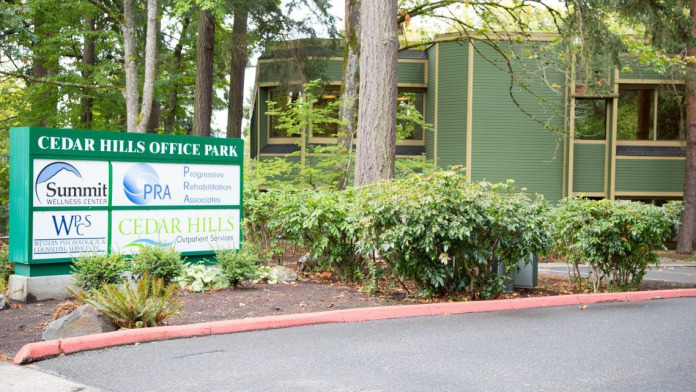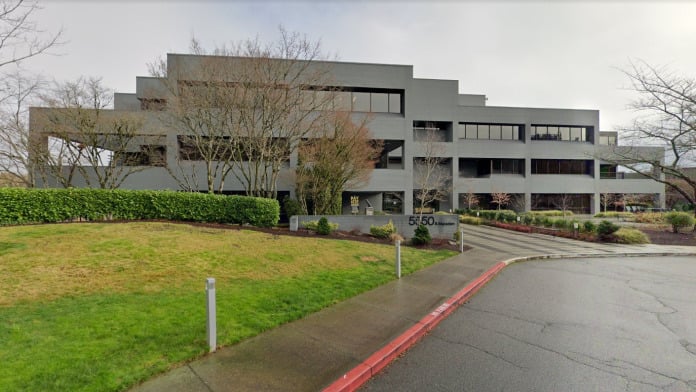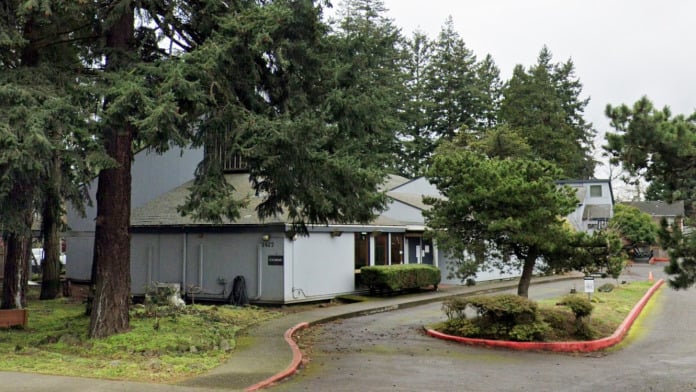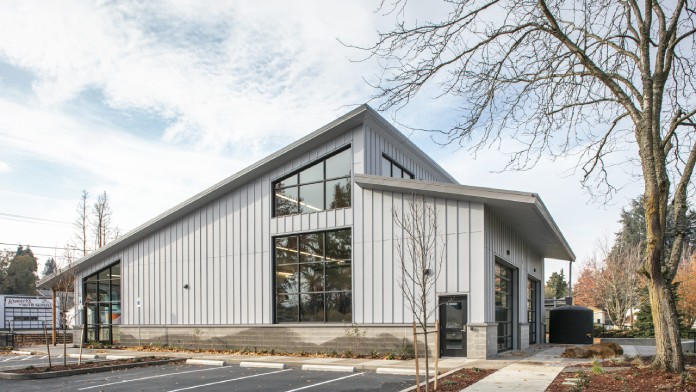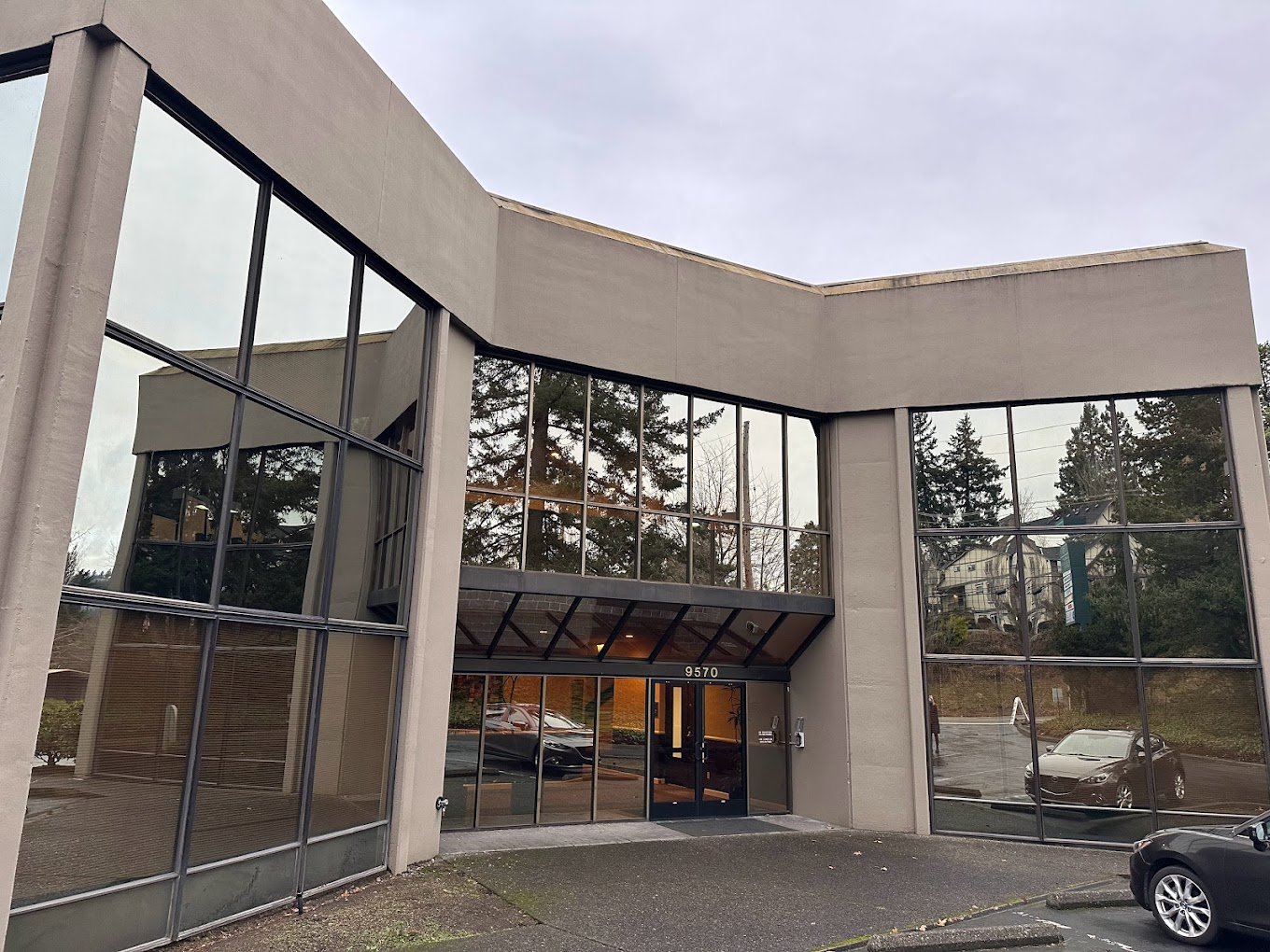The group meetings of this center have been of great help for my recovery, the whole program is well structured so that patients achieve specific objectives. Highly recommend this place for a recovery-focused environment, It is worth the money and time.
About Hazelden Betty Ford Foundation
You’ll find this center just west of downtown Portland. As a dual-diagnosis outpatient clinic, clients can rest assured they’ll receive rounded, comprehensive care here for any mental and behavioral issues including addiction and substance abuse. After initial assessments and diagnosis, the team guides clients through their recovery with a personalized treatment and aftercare plan.
Holistic care is the goal here, with the staff trained to address substance misuse and mental health issues together, since oftentimes, the symptoms go hand-in-hand. Services are typically offered through the center’s intensive outpatient program (IOP), which is available either in person or virtually. This is ideal for individuals with limited mobility, or those simply unable to make regular in-person appointments.
Of course, when it comes to effective treatment, accessibility is key. Specialized treatment is offered to address addiction and trauma, with a special focus program for opioid use disorder. Mental health appointments and medication management are also provided. Resources and support are also available to family members who wish to help their loved ones on their recovery journey.
A DUI diversion program is also an option for individuals who may have gotten into legal trouble because of their substance misuse. Once clients come to the end of their treatment programming, they may access continuing care services, to help them maintain a long-term, sustainable recovery.
Facility Overview
Latest Reviews
Rehab Score
Gallery

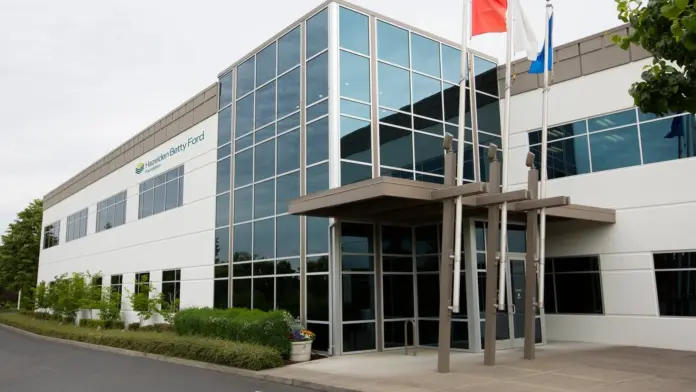
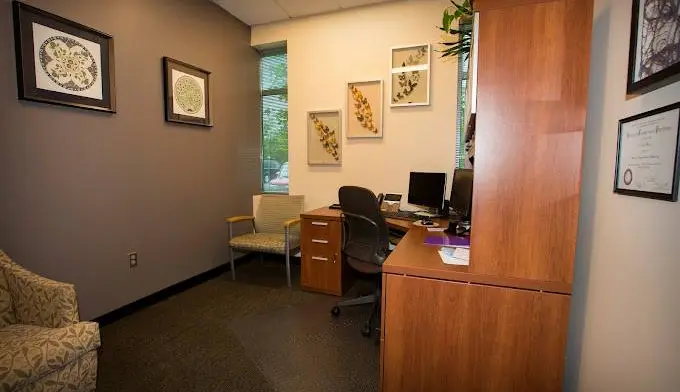
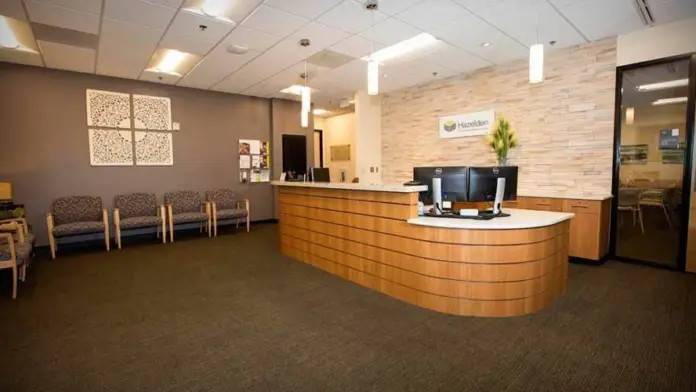
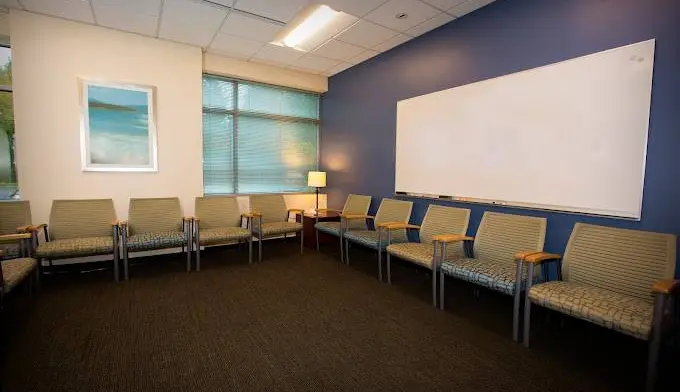
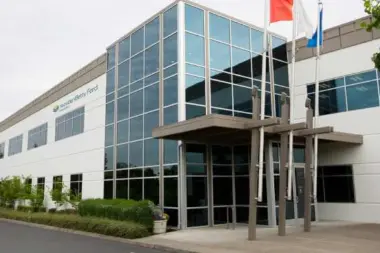
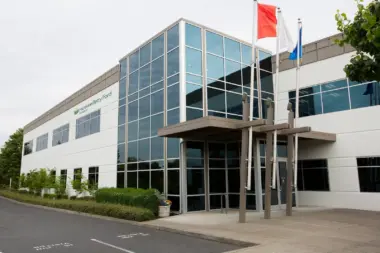
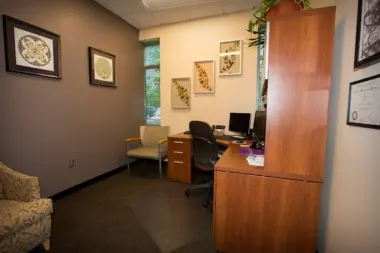
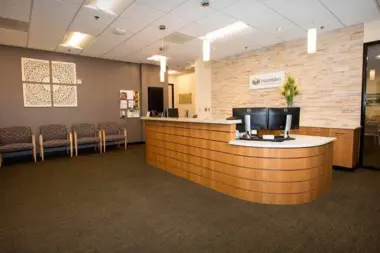
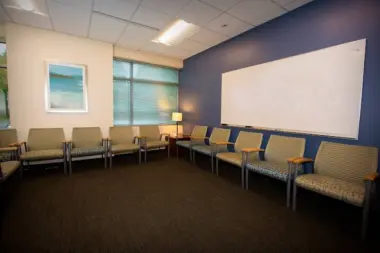
Accepted Insurance

Other Forms of Payment
Private insurance refers to any kind of healthcare coverage that isn't from the state or federal government. This includes individual and family plans offered by an employer or purchased from the Insurance Marketplace. Every plan will have different requirements and out of pocket costs so be sure to get the full details before you start treatment.
Self-pay involves paying for treatment out of your own pocket. You can use savings or credit, get a personal loan, or receive help from family and friends to fund your treatment. If you don't have insurance or your insurance plan doesn't cover a specific program, self-pay can help ensure you still get the care you need.
Military members, veterans, and eligible dependents have access to specific insurance programs that help them get the care they need. TRICARE and VA insurance can help you access low cost or no cost addiction and mental health treatment. Programs that accept military insurance often have targeted treatment focused on the unique challenges military members, veterans, and their families face.
Addiction Treatments
Levels of Care
Outpatient programs are for those seeking mental rehab or drug rehab, but who also stay at home every night. The main difference between outpatient treatment (OP) and intensive outpatient treatment (IOP) lies in the amount of hours the patient spends at the facility. Most of the time an outpatient program is designed for someone who has completed an inpatient stay and is looking to continue their growth in recovery. Outpatient is not meant to be the starting point, it is commonly referred to as aftercare. Outpatient addiction treatment programs at the Hazelden Betty Ford Foundation operate under the same evidence-based, Twelve Step principles and practices as our inpatient treatment programs.
Intensive Outpatient Programs (IOP) are for those who want or need a very structured treatment program but who also wish to live at home and continue with certain responsibilities (such as work or school). IOP substance abuse treatment programs vary in duration and intensity, and certain outpatient rehab centers will offer individualized treatment programs.
12-step programs are addiction recovery models based on Alcoholics Anonymous (AA). A number of substance abuse programs (including some drug and alcohol rehab centers) use the 12 steps as a basis for treatment. Beginning steps involve admitting powerlessness over the addiction and creating a spiritual basis for recovery. Middle steps including making direct amends to those who've been hurt by the addiction, and the final step is to assist others in addiction recovery in the same way. 12-Step offshoots including Narcotics Anonymous (NA), Cocaine Anonymous (CA), Dual Recovery Anonymous (DRA), Sex and Love Addicts Anonymous (SLAA) and Gamblers Anonymous (GA).
Treatments
The goal of treatment for alcoholism is abstinence. Those with poor social support, poor motivation, or psychiatric disorders tend to relapse within a few years of treatment. For these people, success is measured by longer periods of abstinence, reduced use of alcohol, better health, and improved social functioning. Recovery and Maintenance are usually based on 12 step programs and AA meetings.
Drug rehab in Oregon offers a full continuum of care for those struggling with addiction. From detox, to inpatient, to outpatient, to aftercare, Oregon residents can find the support they need for recovery. This treatment empowers individuals to replace drug use with positive alternatives and develop a healthier lifestyle.
Many of those suffering from addiction also suffer from mental or emotional illnesses like schizophrenia, bipolar disorder, depression, or anxiety disorders. Rehab and other substance abuse facilities treating those with a dual diagnosis or co-occurring disorder administer psychiatric treatment to address the person's mental health issue in addition to drug and alcohol rehabilitation.
A combined mental health and substance abuse rehab has the staff and resources available to handle individuals with both mental health and substance abuse issues. It can be challenging to determine where a specific symptom stems from (a mental health issue or an issue related to substance abuse), so mental health and substance abuse professionals are helpful in detangling symptoms and keeping treatment on track.
Opioid rehabs specialize in supporting those recovering from opioid addiction. They treat those suffering from addiction to illegal opioids like heroin, as well as prescription drugs like oxycodone. These centers typically combine both physical as well as mental and emotional support to help stop addiction. Physical support often includes medical detox and subsequent medical support (including medication), and mental support includes in-depth therapy to address the underlying causes of addiction.
Programs
Recovery is most successful when clients feel accepted and validated by their peers and treatment providers. Facilities that offer LGBTQ-inclusive programming are committed to creating a safe space where everyone can grow and recover without fear of judgment or discrimination. They will have dedicated policies in place to create a safe and supportive environment that fosters free expression.
Serving in the military is both mentally and physically challenging, and can result in trauma that persists even after combat ends. Military programs are tailored to the specific and often complex needs of active duty personnel, veterans, and military families. Clients often access these programs through the U.S. Department of Veterans Affairs (VA).
Clinical Services
Research clearly demonstrates that recovery is far more successful and sustainable when loved ones like family members participate in rehab and substance abuse treatment. Genetic factors may be at play when it comes to drug and alcohol addiction, as well as mental health issues. Family dynamics often play a critical role in addiction triggers, and if properly educated, family members can be a strong source of support when it comes to rehabilitation.
Life skills training is customized to fit your circumstances and needs. It allows you to rebuild the skills you've lost to addiction and regain control of daily life. It provides the necessary social, psychological, and physical skills you need for recovery.
Amenities
-
Private Setting
Staff & Accreditations
Staff
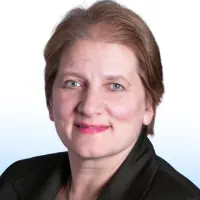
Dawne Carlson
VP of Human Resources

Alta DeRoo, MD, MBA, DFASAM, FACOG
Chief Medical Officer
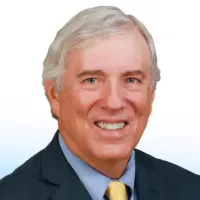
Kevin Doyle, EdD, LPC, LPCC
President & CEO
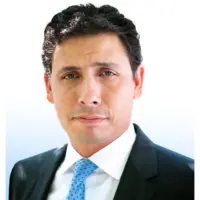
Ahmed Eid, MA, LADC
Regional VP of Minnesota

Joe Jaksha
VP & Publisher

Carmen Rodriguez Johnson
CMO

Joseph Lee, MD
President & CEO
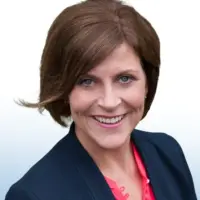
Moira A. McGinley, CFRE
VP & Chief Transformation Officer
Accreditations

The Joint Commission, formerly known as JCAHO, is a nonprofit organization that accredits rehab organizations and programs. Founded in 1951, the Joint Commision's mission is to improve the quality of patient care and demonstrating the quality of patient care.
Joint Commission Accreditation: Yes
Contact Information
6600 SW 105th Ave
#120
Beaverton, OR 97008




